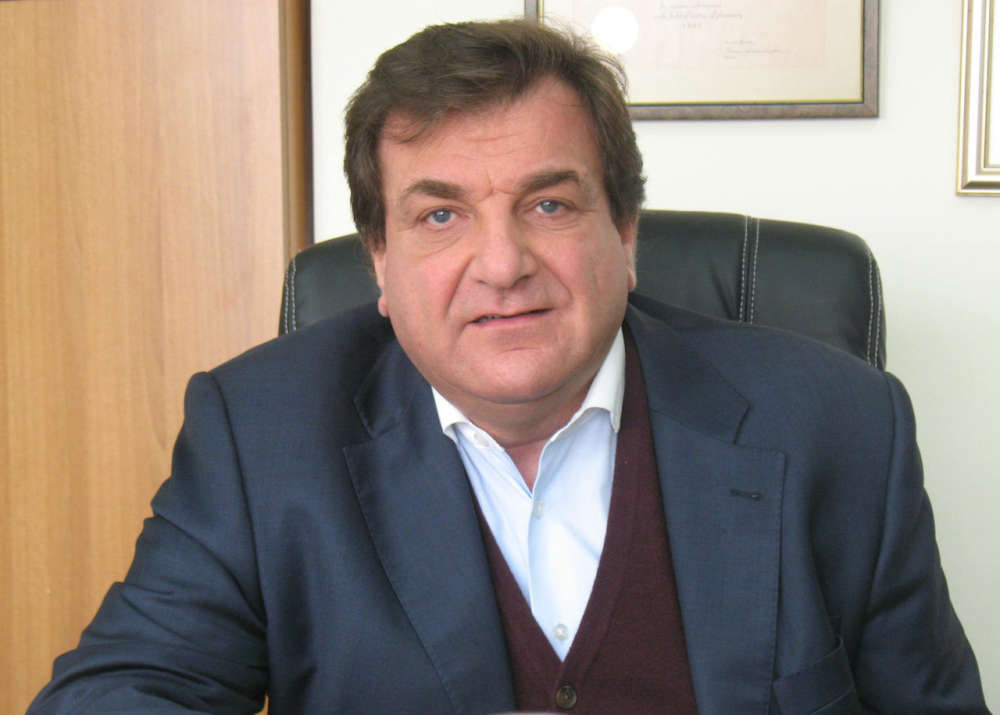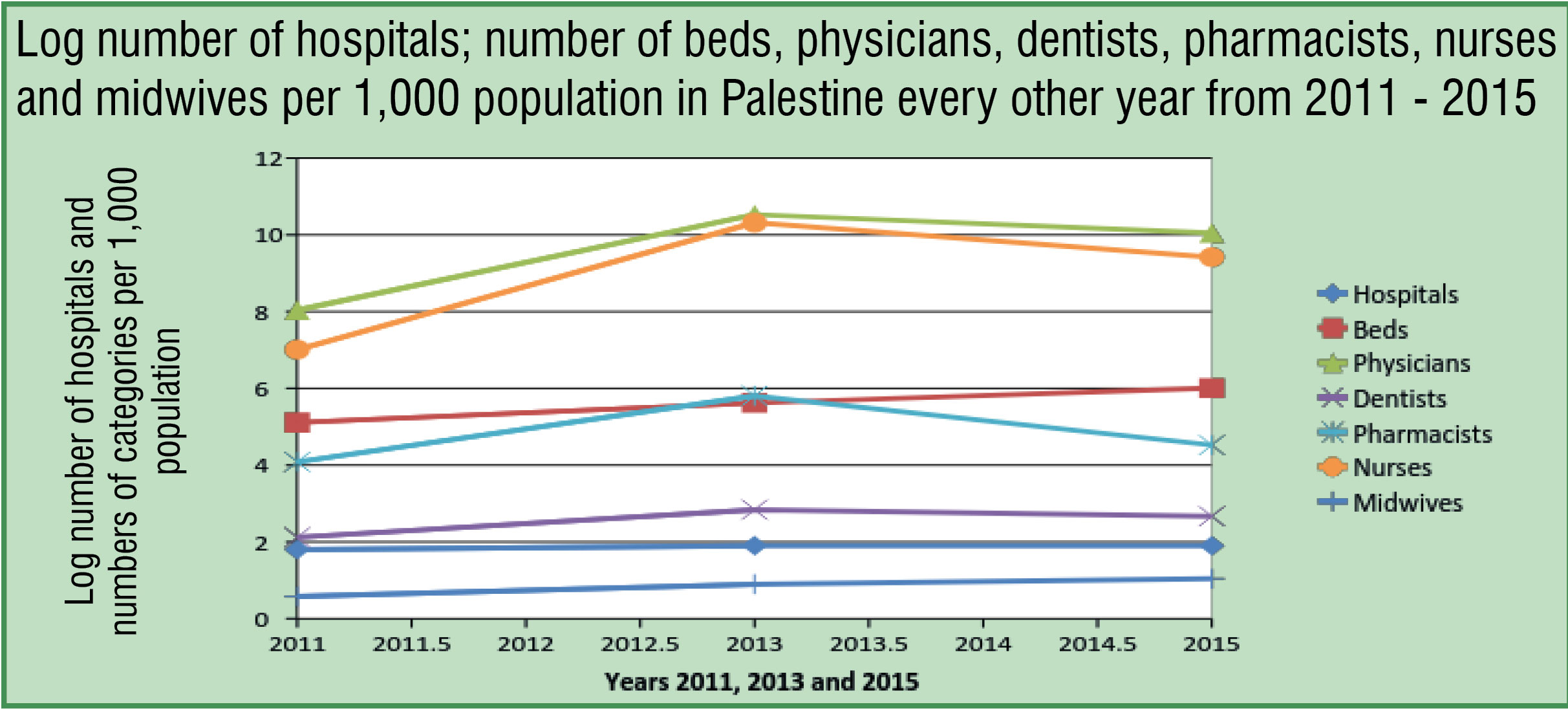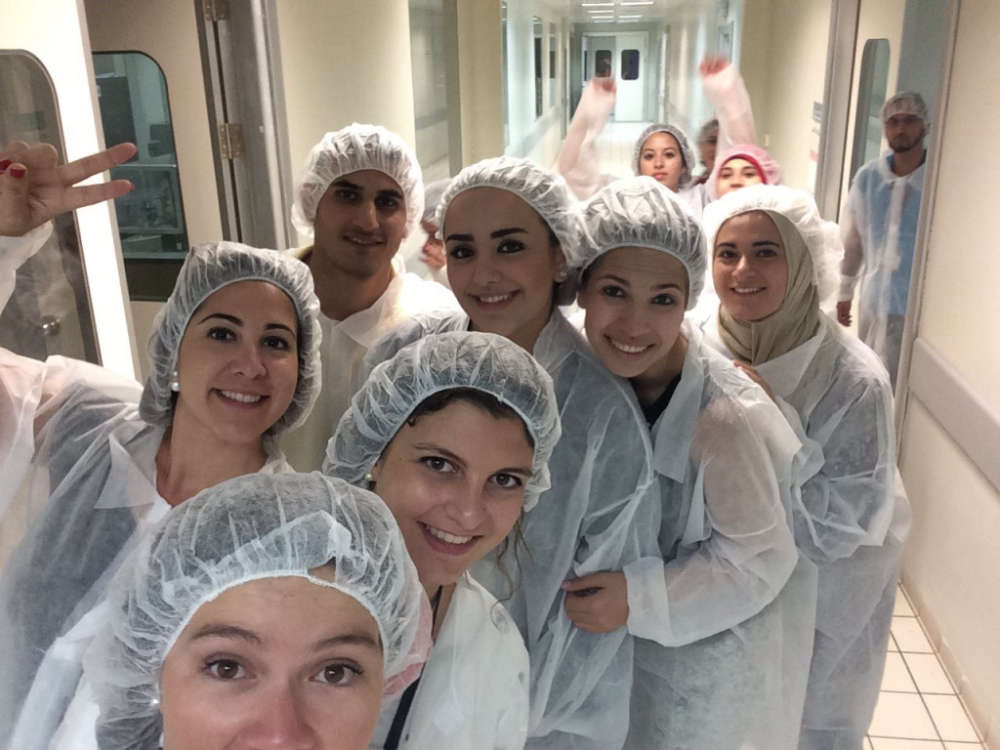The Palestinian pharmaceutical sector has demonstrated dramatic competence in managing the local manufacture of pharmaceuticals and their global distribution. Special emphasis has been put on the production of essential drugs such as antibiotics, diabetes medication, and antihypertensive and analgesic agents. International exporting of these drugs has been enabled thanks to dedicated attention to quality assurance, as the various local pharmaceutical companies have been able to demonstrate stringent and consistent compliance with the high standards of Good Manufacturing Practice (GMP). Nevertheless, and despite such successes, there remain some major challenges that Palestinian pharmaceutical companies must overcome. Such challenges may be attributed to the small domestic market and to the political restraints imposed by Israel, which include restrictions on the import of raw materials and on access and movement, particularly to Gaza, which represents 40 percent of the pharmaceutical market. In response, the four major Palestinian pharmaceutical companies have engaged in a synergic collaboration in order to overcome such barriers; they are placing a special focus on research and development and producing new therapeutics.
The health sector in Palestine has recorded success in the elimination of contagious infectious diseases such as schistosomiasis, leprosy, diphtheria, plague, poliomyelitis, and rabies, and only a few cases that correspond to particular infectious diseases such as AIDS, hepatitis, tuberculosis, diarrhea, and pneumonia may still be present. However, noncommunicable diseases such as cardiovascular disease, diabetes, cancer, and hypertension have been more closely associated with mortality rates and are still on the rise. In 2011, cardiovascular disease, followed by cancer and cerebrovascular disease, have ranked top among the factors leading to death in Palestine.
The Palestinian Government, represented by the Ministry of Health (MOH), is the key Palestinian player in the management of pharmaceutical bureaucracy from policy making and legislation to execution and inspection.
The Palestinian Pharmacists Association (PPA) is the organizational body of pharmacists that works with the MOH in a number of complementary ways. Founded in 1957 as a joint body with the pharmaceutical association in Amman, and in collaboration with the General Directorate of Pharmacy at the MOH, the PPA issues regulations and manages the subsequent inspection in order to assure the highest quality of practice. Such regulations are mainly concerned with the marketing authorization and registration of the currently registered 7,000 products, but they also take care of inspection, import control, licensing, market control, quality control, GMP adherence, medicine advertisement and promotion, clinical-trial control, and pharmacovigilance. Even though such activities may be covered in current rules, there are no specified regulations that correspond to the inspection of pharmaceuticals at authorized ports of entry, good distribution practice, good pharmacy practice, the promotion and advertising of pharmaceuticals in accordance with national codes of conduct, and the control of particular products, such as narcotics and psychotropics.
Despite the political challenges dictated by the Israeli occupation, Palestinian pharmaceutical companies continue to demonstrate impressive records regionally and interna-tionally, and serve as one of Palestine’s major industrial resources, promoting a total national output of 2.43 percent of the Palestinian manufacturing industry, US$ 40 million.
The MOH is the major healthcare service provider in Palestine. The bulk of services are provided through its 458 medical centers that are scattered throughout the West Bank and the Gaza Strip. Alongside the MOH are a number of other healthcare providers that include the United Nations Relief and Works Agency for Palestine Refugees in the Near East (UNRWA), Palestinian nongovernmental organizations (NGOs), Palestinian Military Medical Services (PMMS), and private for-profit organizations. These organizations operate 102 (UNRWA), 206 (NGOs), and 23 (PMMS) healthcare centers and clinics that are distributed among the districts of the West Bank and Gaza Strip, in addition to 458 primary healthcare centers run by the MOH and 81 governmental and nongovernmental hospitals. There are a total of 6,006 hospital beds available, resulting in 14.5 beds per 10,000 Palestinian inhabitants, of which 25 percent are located in specialized wards, whereas the rest may be termed general. In total, there are 4,522 licensed pharmacists, 10,049 physicians, 2,667 dentists, 9,418 nurses, and 1,039 midwifery personnel working in Palestine, which confers 10.9 pharmacists, 24.2 physicians, and 22.6 nurses per 10,000 capita.
Palestine presents six pharmaceutical companies, which cover an estimated 50 percent of the local pharmaceutical market. One of these is located in the Gaza Strip and no longer functioning due to the Israeli-imposed siege that is all but preventing the entry of goods and commodities into the Gaza Strip. All others reside in the West Bank. Pharmacare, Al-Quds Pharmaceuticals, Birzeit Pharmaceutical Company, and Beit Jala Pharmaceutical Company have established a strong presence over the years and have reflected quality products that are not only distributed domestically but also largely exported to international markets. A new entrant to the market is Sama Pharmaceuticals, located in Nablus, and it is expected to launch its first products in late 2017.
Pharmacare PLC was incorporated as a public shareholding company in 1985, initiated by a group of Palestinian entrepreneurs chaired by the late Subhi Khoury Nasr, and has focused on manufacturing pharmaceuticals and chemicals. Pharmacare adopted the motto “Expression of Trust,” embracing a policy of manufacturing quality products and delivering them at affordable prices. Upon obtaining the EU-GMP and ISO certificates and other prestigious awards, Pharmacare became the first pharma company to export its locally manufactured products. Today, production takes place at its two industrial implants in Palestine and Malta, and pharmaceuticals are exported to over fifteen countries in three continents (with an additional two markets on the verge of being accessed). Pharmacare continues to exploit a symbol of quality excellence and markedly promotes a signatory of Palestinian leading industries shooting towards perfection.
The six Palestinian pharmaceutical companies have invested US$ 30 million to satisfy Good Manufacturing Practice standards. With 1,100 employees, this pharmaceutical body currently provides over 2 percent of the total national employment and 1.4 percent of the total national export, with US$ 13,395 million.
Birzeit Pharmaceutical Company (BPC) has been a pioneering pharmaceutical industrialist within the Palestinian market. Holding ISO and GMP certificates, the company nurtures a bright reputation; it currently introduces the largest number of products that cover various therapeutic needs, with 300 drugs distributed over ten production lines. Exporting its products to Algeria and to various countries in Eastern Europe, BPC has assumed a reputable position among Palestinian pharmaceutical companies.
Jerusalem Pharmaceuticals Company was founded in 1967, following the Israeli occupation that hindered the import of medicines into the West Bank and the Gaza Strip. Importers decided to assume entrepreneurship and to initiate a wave of local manufacturing of pharmaceuticals that they termed Jerusalem Pharmaceuticals. The offshoot of the company came to light in 1969 when the company was declared a private manufacturing facility. To meet the ever-expanding needs, the company assumed a private shareholding status in 1975, which was transformed to a public shareholding corporate in 1978. Jerusalem Pharmaceuticals employs highly professional personnel within 15 different countries, extends high standards of manufacturing quality, and continues to excel within the Palestinian market as one of the local leaders in the pharma industry.
Beit Jala Pharmaceuticals (BJP) was founded in 1958 as the first pharmaceutical company in Palestine. The name was preemptively termed the Jordan Chemical Laboratory. BJP assumes a staunch strategy to ensure the constant development of its manufacturing potential and facilities’ capacity. BJP follows a strict adherence to the high-quality CGMP (Current Good Manufacturing Practices) standards and undertakes an unyielding attitude toward the attainment of the best quality products. The company recruits the best possible technologies to facilitate the smooth avant-garde production of safe, pure, and efficacious generic pharmaceuticals.
MegaPharm (currently no longer functioning on account of the past years’ Israeli siege round the Gaza Strip) is the first company built and designed to key-and-lock match the CGMPs system structure of manufacturing high quality products. It is equipped with technologies and appliances that respond to proper GMP guidelines and is a member of the Union of Palestinian Pharmaceutical Manufacturers (UPPM) and the Arab Union for Producers of Drugs and Medical Supplies.
Sama Pharmaceuticals is an ambitious, fast-growing Palestinian pharmaceutical company based in Nablus. The company has set forth a mission to evolve as a leading element in the world of Palestinian pharma and is reputed for its cost-effective quality medicines in key therapeutic areas across the market.

All pharmaceutical companies are members of the UPPM, an organization that organizes activities of this sector with regard to medical and scientific conferences, and promotes and lobbies the interest of its members.
Despite the impressive records demonstrated by the five pharmaceutical companies throughout the past decades, the Protocol on Economic Relations, also called the Paris Protocol, and the associated joint customs envelope have exerted a negative impact on the general conception of local pharmaceuticals in Palestine. As a consequence, the free, one-directional flow of Israeli and Israeli-registered foreign pharmaceuticals into the Palestinian market has been sanctioned. According to the agreement, Palestine is considered a socio-economic entity congruent with Israel; it allows Israel to prohibit the import and export of pharmaceuticals and raw materials for as long as they do not comply with Israeli standards. The enforcement of such regulations has disturbed and deteriorated the Palestinian industrial potential, it allows for the access of cheap generics, has made it impossible for over 47 percent of the Palestinian population to afford medicines produced in the local private sector, and has put a stop to any potential business opportunities with neighboring Arab countries.
Defying these barriers and challenging the hindering political obstacles, Palestinian pharmaceuticals continue to emerge as regional leaders in the integrated pharmaceuticals business, continually achieving and surpassing the highest standards through quality-driven manufacturing and achieving sustainable development through environmentally friendly practices. Palestinian pharmaceuticals have made it their mission to improve the quality of human life by catering to the well-being, health, and safety of their people by providing optimal access to both quality generic pharmaceuticals and to brand products.
Related literature
1. Giacaman, Rita, et al, “Health status and health services in the occupied Palestinian territory,” The Lancet, 2009, vol. 373, no. 9666. Available at http://www.thelancet.com/journals/lancet/article/PIIS0140-6736(09)60107-0/fulltext.
2. Palestinian Health Information Center, Health Annual Report: Palestine 2014, State of Palestine, Ministry of Health. Available at http://www.moh.ps/Content/Books/kD3bquHr7jbwK9f6VQJAsLDCuckgEDlCZUFa9ssb62m9Eim2le562D_ECDSNEboZRJwc6HyiggSMzKUPMeDJa2vkBNlAdZOGlvNuS9CHKJjGO.pdf.
3. Naqib, Fadle M., “Economic Relations between Palestine and Israel During the Occupation Era and the Period of Limited Self-Rule,” University of Waterloo, Canada, 2015. Available at https://erf.org.eg/wp-content/uploads/2017/05/2015-Naquib-website.pdf.
4. Sweileh, Waleed M., et.al, “Pharmacy Practice in Palestine,” Chapter 13 in Pharmacy Practice in Developing Countries, Elsevier, 2016. Available at https://staff.najah.edu/media/scientific-research/books/2016/05/19/3-s2.0-B9780128017142000137-main.pdf.
5. Palestinian Ministry of Health in collaboration with World Health Organization. Pharmaceutical Country Profile 2011. Available athttp://www.who.int/medicines/areas/coordination/PalestinePSCP_NARRATIVE-PAL_2011-08-10Final.pdf.




